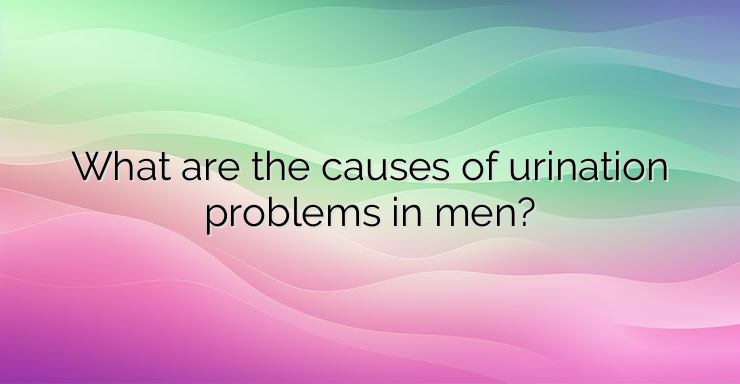Difficulty urinating becomes more common among men as they age. One in three men over the age of 50 and almost everyone over the age of 85 experience some difficulty urinating. The way men urinate changes slowly as they age, so men may not notice a problem at first. Common changes include: Difficulty or delay in starting the act of urination. This is common with age and with prostate problems; Interruption of the trickle; After urinating, a little more urine comes out. This can be prevented by doing 2 or 3 pelvic floor muscle contractions after you finish; A feeling of not emptying the bladder; Frequent urination or a feeling of sudden urges. The two most common causes of urination problems in men are aging and an enlarged prostate gland. As we age, the bladder muscles become more likely to contract suddenly, leading to a sense of urgency to urinate. Urine leakage may occur before you reach the toilet. As we age, fluid retention becomes more frequent, further aggravating the condition. Difficulty urinating in men is often due to a non-cancerous enlargement of the prostate. This condition is called benign prostatic hypertrophy.The condition is considered a normal part of aging. Enlargement of the prostate gland can also be due to a malignant tumor in it. Prostate cancer is much less common than benign prostatic hypertnophy. An enlarged prostate can cause a condition called overactive bladder, where the prostate has to work harder to empty itself. For example, if the outlet is narrowed due to increased sizes of the gland, or it can get worse if the bladder does not empty completely. Other conditions that can lead to problems urinating in men are urinary tract or bladder infection, spinal or prostate surgery, or medication such as diuretics.


Leave a Reply